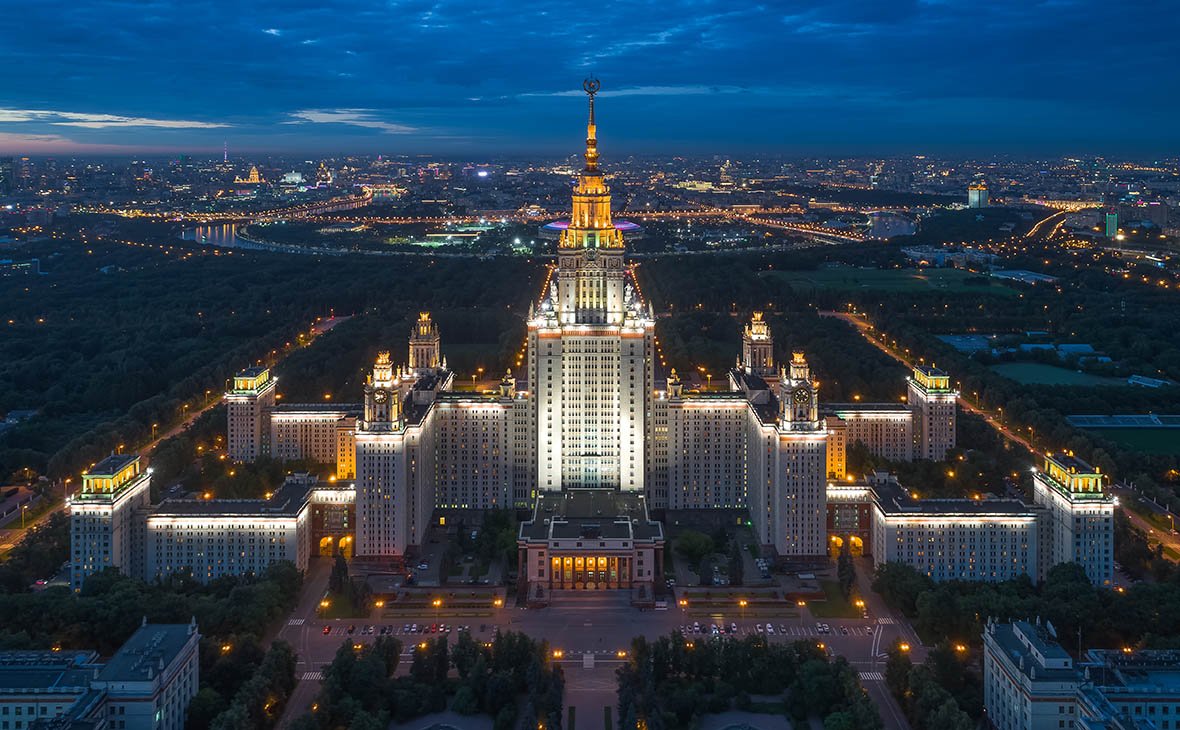Education is one of the most important spheres of the economy and social life. Educated people in Russia have always been treated with a special respect. Russia is justly take pride in the level of education of its citizens, who enjoy both free and relatively inexpensive education at all levels.
Being the largest country in the world, Russia provides unlimited possibilities in choosing a university and future profession in any of 85 regions of the country from the Baltic to the Pacific Ocean.
Along with the Russians, foreign students have long been studying at Russian universities. Today more than 300,000 foreign students prepare to enter a university or pursue higher and postgraduate education in 800 universities in Russia and this number is growing rapidly. By 2025, the number of foreigners is planned to be more than doubled.
For any country it is prestigious and very important to train foreign students who eventually occupy key positions at home and build political and economic relations with other countries. Russia is also trying to attract as many students from all over the world as possible and create the most comfortable environment for their learning and living. It is also noteworthy that both Russian and foreign students share the same learning conditions. Foreign students as well as Russians can receive free education and scholarship.
A clear advantage of studying at a Russian university is the low cost of education. Prices for educational services depend on the chosen university, faculty and other factors. But in any case, they are significantly lower than in Western Europe.
The most popular cities and universities to study in Russia
If until recently the most preferable Russian city to study has been the capital Moscow with its more than 90 higher education institutions, then in recent years foreigners more often want to study in other regions of the country. Besides Moscow, the leading city in the number of foreign students is St. Petersburg with its main higher education institution – St. Petersburg State University (SPBU) ranked second after the Moscow RUDN University.
Students are free to choose any Russian city depending on their preferences: St. Petersburg and Kaliningrad – the most western ones in the European part, or Krasnodar and Rostov-on-Don in the fertile and flourishing south of Russia, magnificent Kazan, where Islam and Christianity intertwine in harmony, or Novosibirsk and Tomsk in the endless mysterious Siberia, the Far Eastern Krasnoyarsk – there are so many choices.
What professions do foreigners choose in Russian universities?
The most popular training programmes for foreign students are medicine, engineering and construction, architecture, economics and more modern information technologies.
The vast majority of foreign students do not speak Russian, and therefore begin their education at the preparatory faculty of the university.
Where do they come from to study in Russia ?
The mainstream of foreign students travels from China, the Middle East, African countries, Latin America, Southeast Asia and of course from the countries of the former Soviet Union. More and more students from Western and Eastern Europe are coming to Russian universities.
Preparation for entering a university
Students who have not made up their mind about their future profession and place of study can make their choice during the training at the preparatory programme. The first stage of education of the great number of students is preparation for entering the university and learning the Russian language. A small proportion of international students study English to continue their studies at an English-speaking university in any other country or in Russia. Many programmes in Russian universities can be studied not only in Russian, but also in English. Upon completion of the training course, students take the required tests and exams in accordance with the chosen programme of further education at the selected university.
A part of the foreign students after the preparatory programme in English continue their studies not only in Russia but also at the best universities around the world – in Europe, USA, Canada, Australia, etc. (For more details on our educational programmes outside Russia, please visit our website – http: //www.solzet .ru / )
The preparatory course is not limited to language learning. Depending on the chosen programme, students can also study specialized subjects – chemistry, mathematics, physics, biology, etc.
The duration of training at the preparatory programme is up to 10 months, but with a sufficient level of language skills the programme can be completed earlier.
Foreign students’ life and leisure in Russia
Student years – the most interesting time in the life of a young person. Realizing the importance of attracting students from abroad, the Russian government has included training programmes for foreigners in the number of national priority projects.
Despite considerable advantages, some universities, however, point out weaknesses, mainly related to the limited student enrollment, welfare, migration and visa procedures. Within the framework of the national projects, considerable funds are allocated to eliminate any shortcomings and improve the quality of training and other services provided to both Russian and foreign students, and the necessary amendments are being made to the legislation. The quotas for free education in Russian universities are expanding.
It is also planned to simplify the procedure of obtaining the right to work and a residence permit or citizenship for the most talented students who wish to stay in Russia after graduation.
We help our students choose a university, prepare for entering a selected university, and assist in obtaining a student visa.
We will always be happy to help solve all everyday issues: renting accomodation, opening a bank account, buying a car, etc.


 +7(495)223-94-01
+7(495)223-94-01 Russia, Moscow, St. Akademika Pilyugina, 12, block 2, below.8, of.1
Russia, Moscow, St. Akademika Pilyugina, 12, block 2, below.8, of.1 info@eduinrussia.info
info@eduinrussia.info